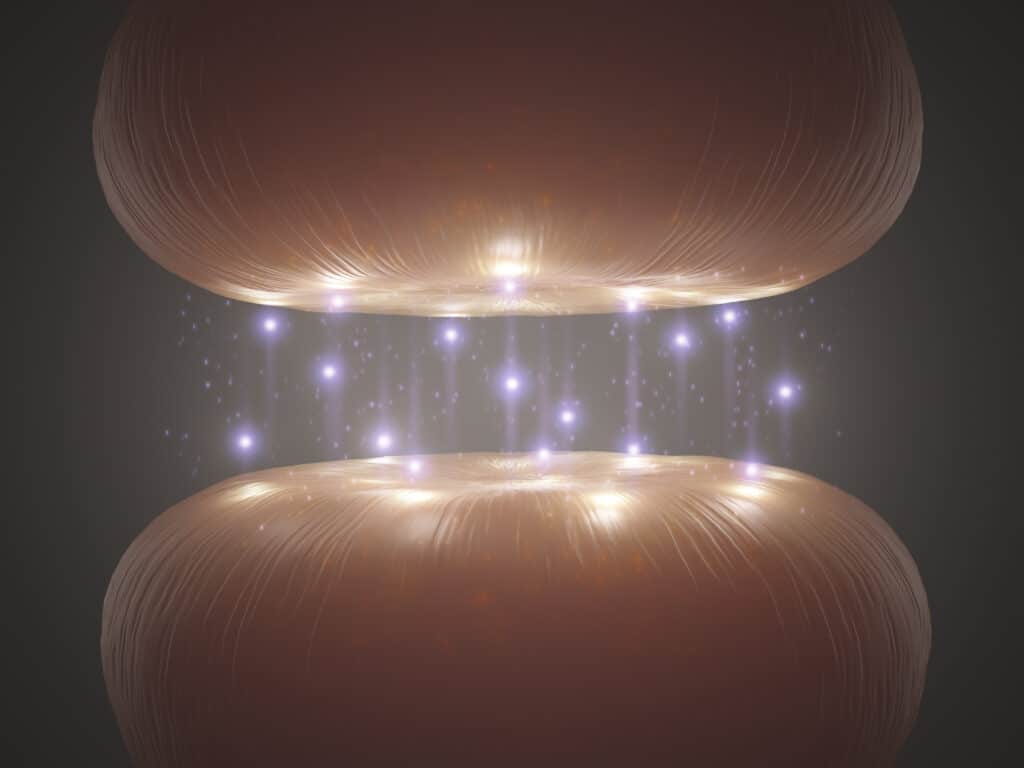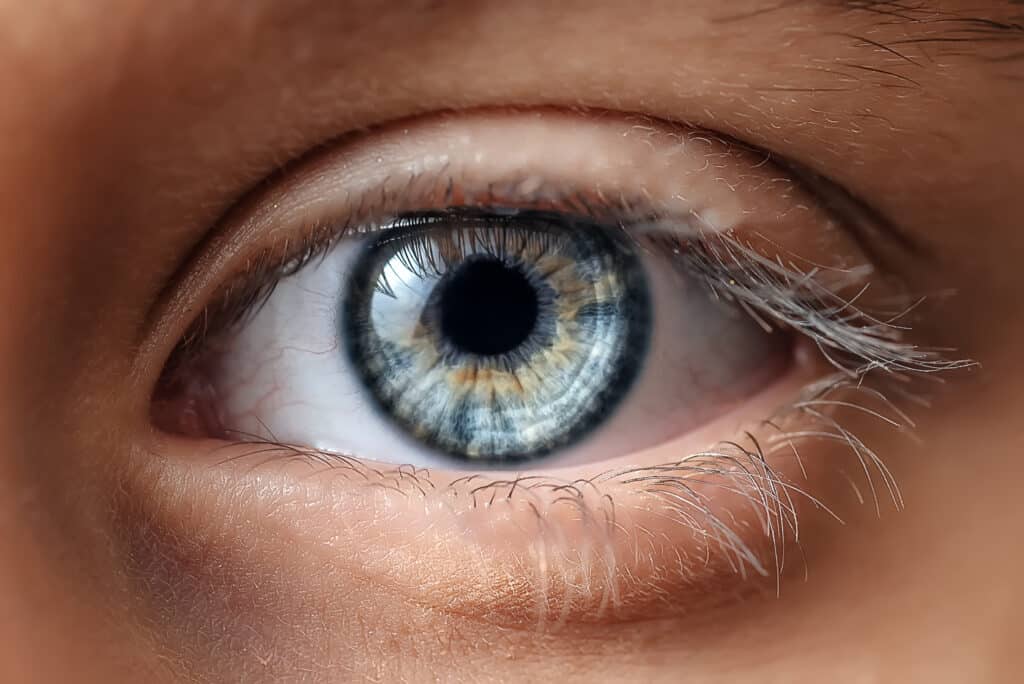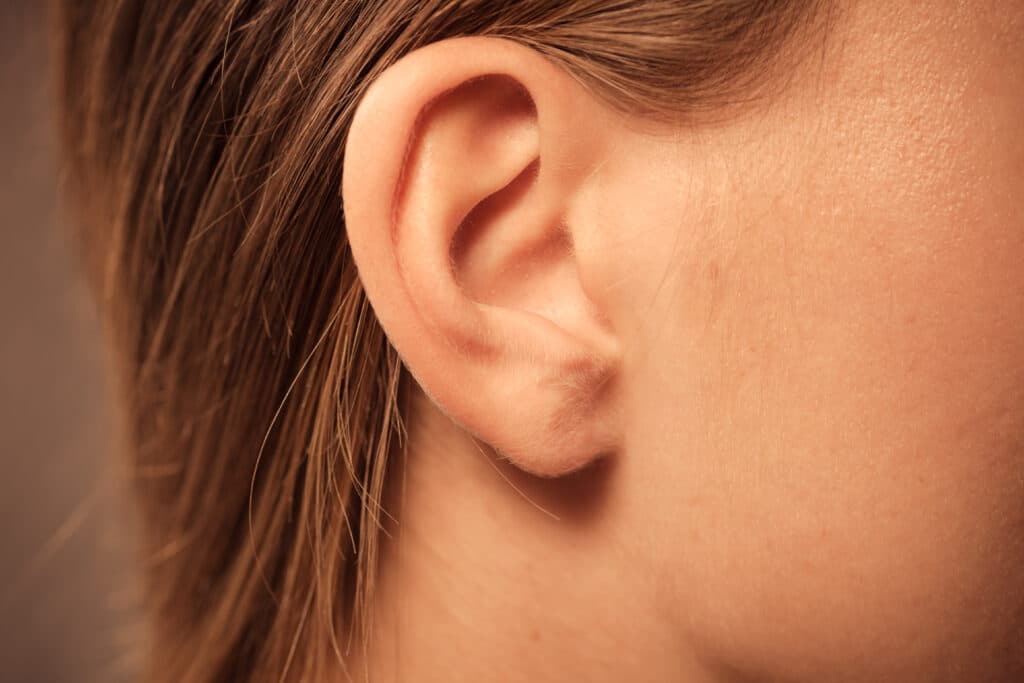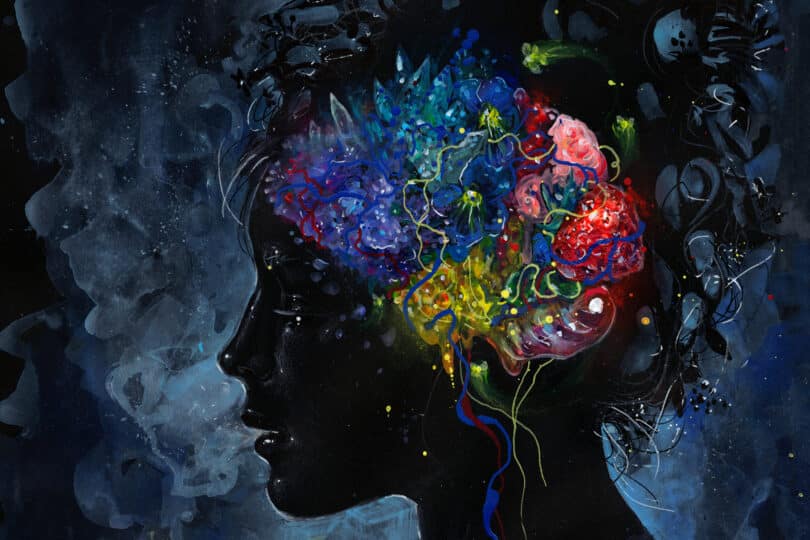When we take psychedelics, reality can become warped and it may feel like all your senses are working in overdrive. But what exactly are the mechanisms of these changes? We know that hallucinogens typically work by binding to serotonin receptors, but they don’t actually have a direct impact on our senses per se. Rather, they work by changing the way we perceive the world around us, via the five senses. Let’s explore this relationship further.
How psychedelics work in the brain
A psychedelic experience is a temporarily altered state of consciousness induced by the consumption of a hallucinogenic substance. For example, an acid trip is a psychedelic experience brought on by the use of LSD, while a mushroom trip is a psychedelic experience brought on by the use of psilocybin products.
From a scientific standpoint, our brains react in a similar way when we trip, regardless of what the substance in question is. Typically, neuroscientists and other experts in the field use the term to describe substances that bind to the serotonin 2A (5-HT2A) receptor; although there are a few other ways that these drugs can work.

Psychedelic drugs can also make us hallucinate by activation of dopamine D2 receptors, which generally happens when using psychostimulants like ecstasy; or by blocking glutamate NDMA receptors, like when dissociative anesthetics are the drugs in question.
Once hallucinogenic drugs reach the brain, we typically see an increased activation of delta and gamma waves and the suppression of alpha and beta waves. When we are awake and alert, the brain is dominated by alpha, beta, and gamma waves. When we sleep, delta and theta waves take over. The pairing of “alert” gamma waves and “sleeping” delta waves, could explain why psychedelics trips are akin to dream-like states that we experience while still awake.
This is also why psychedelic trips are so sentient and thought provoking in nature. Trips often vary in intensity, but they can affect all the senses and can change a person’s thought process, and their perception of time, space and reality. They are known to produce auditory, visual, and sensory hallucinations, however, some users experience no hallucinations at all, instead experiencing just feelings of euphoria, connectedness, introspection, and overall well-being. Some might also experience mystical and otherworldly encounters. Much of how a person trips is related to their DNA, as well as some external factors that could impact the nature of a high.
The five senses
The “five senses” refers to how the nervous system receives and processes information. Most animals have the same senses, although it can vary with some having less and some having more like infrared and ultraviolet vision, magnetic or electric senses, and echolocation. Humans have five sensory organs to help us understand the world around: the eyes, nose, ears, tongue, and skin.
Specialized cells and tissues within these sensory organs receive information, or “raw stimuli” and translate it into signals and messages that the nervous system can understand. The nerves relay the signals to the brain, which interprets them as sight/vision, sound/hearing, smell/olfaction, taste/gustation, and touch/tactile perception.
Sight
One of the most common misconceptions about psychedelics is that they actually produce hallucinations, but this isn’t quite how it works. What you see when you’re tripping is actually just an altered and exaggerated version of things that you are currently seeing or that already exist in everyday life. It’s common to see colors more vividly, fractals and geometric shapes forming around objects, faces morphing, and so on. But all of these hallucinations are rooted in reality still – you’re not seeing an elephant appear of out thin air or, or fish floating through the sky, or anything else completely out of place like that.

How they work is not by altering your vision, but by changing the way your prefrontal cortex processes the data it receives from the retinas. Apparently, the reason why some users see more fractals than others is connected to how the striate cortex interprets visual cues. This area has cells that store information about geometric shapes, and when hallucinogens disrupt the normal activity in this part of the brain, some cells become overactive, making uses see geometric patterns.
Smell
While the other senses are not directly altered by psychedelics, smell is different. Recent studies have found that microsmia (partial loss of smell) and anosmia (total loss of smell) can be improved by use of psychedelic drugs. So far, three cases have been recorded in academic literature detailing the process – two cases were using psilocybin mushrooms and one with lysergic acid (LSD).
In the first case, a man developed microsmia following a respiratory infection. After using 6 grams of psilocybin mushrooms, his sense of smell improved noticeably. In the second case, a woman came down with COVID-related anosmia which improved after three, 0.1 gram-microdoses of psilocybin mushrooms. The third case was a woman who suffered from anosmia since childhood and reported improvement in her olfactory functions after using 100 µg of LSD, one time.
Now, when it comes to olfactory hallucinations, those exist as well. Also known as phantosmia, this type of sensory hallucination describes the “detection or perception of a convincing imaginary smell that is not actually present in the person’s environment.” So, even though psychedelics do actually impact the olfactory senses, we can also hallucinate or manifest familiar smells, whether pleasant or foul, while using these drugs.
Touch
While on hallucinogens, you’re likely to experience a heightened sense of connectedness to your body, especially true with drugs like MDMA. So it’s not uncommon for people to get high and spend some time feeling things like the textures of fabrics or wood, your pet’s fuzzy fur or smooth scales, etc. But again, this isn’t due to an actual change in your sense of touch, but rather, a change in how the brain processes these stimuli while on psychedelics.
The connection between this sense and psychedelics is largely unexplored, but a study led by Patricia Duerler from the Department of Psychiatry, Psychotherapy and Psychosomatics, at University Hospital for Psychiatry in Zurich, Switzerland, proposed that they seem to decrease a brain wave response called “mismatch negativity,” resulting in people feeling more connected with their bodies and how everything functions.
Hearing

Music is a big part of being high. This is one of the reasons that festival culture is so big. And psychedelics do enhance the way we hear music as well as everyday sounds. Further, different notes and tones can impact a psychedelic trip in profound ways, really helping you get into the emotions of the experience… going from the highest of highs to the lowest of lows all in the matter of a song.
Just like with sight, the changes in how we hear things aren’t based on the functionality of our ears, but rather, because our brains are processing the sounds differently and intensifying the emotional reactions associated with them. Even when sober, it’s easy to get lost in a song and shut down our other thoughts to really allow our minds to feel the music; this is amplified significantly when using hallucinogens.
One study led by musical artist Mendel Kaelen and a team of researchers from the Psychedelic Research Group, Department of Medicine, at Imperial College London, examined how people reacted to curated playlists while using psychedelics. They found that, in the right conditions and with the right sounds, participants had more positive trips, some even achieving mystical experiences. You can check out his full playlist on Spotify.
Taste
Gustatory hallucinations, or those involving the sense of taste, are another interesting way we manifest things that aren’t really there or enhance what already is. And it’s also something that we can consider even when using less potent drugs like cannabis – because of how intensified flavors are when we use these products (munchies).
Common gustatory hallucinations include a strong metallic taste in a person’s mouth, or sometimes the opposite, a powerful sweet taste, often compared to “molten sugar”. Some people can also experience sour tasting sensations, or they may even hallucinate the taste of a food they are craving.
Most of the flavors we taste actually originate as smells, so if someone is unable to smell, they have likely lost most of their ability to taste as well. Because these two senses are so closely connected, and there are studies on hallucinogens impacting our olfactory senses, it’s not a stretch to assume that sense of taste can also be impacted by these substances.
Final thoughts
To reiterate, most of the time, psychedelics don’t directly impact our senses. Instead, they change the way we perceive things via the senses. However, that does not seem to be the case with smell and taste, as those senses do seem to actually improve when using hallucinogens.
Hello readers. We’re happy to have you with us at Cannadelics.com; a news source here to bring you the best in independent reporting for the growing cannabis and hallucinogen fields. Join us frequently to stay on top of everything, and subscribe to our Cannadelics Weekly Newsletter, for updates straight to your email. Check out some awesome promos for cannabis buds, smoking devices and equipment like vapes, edibles, cannabinoid compounds, amanita mushroom products, and a whole bunch more. Let’s all get stoned together!







